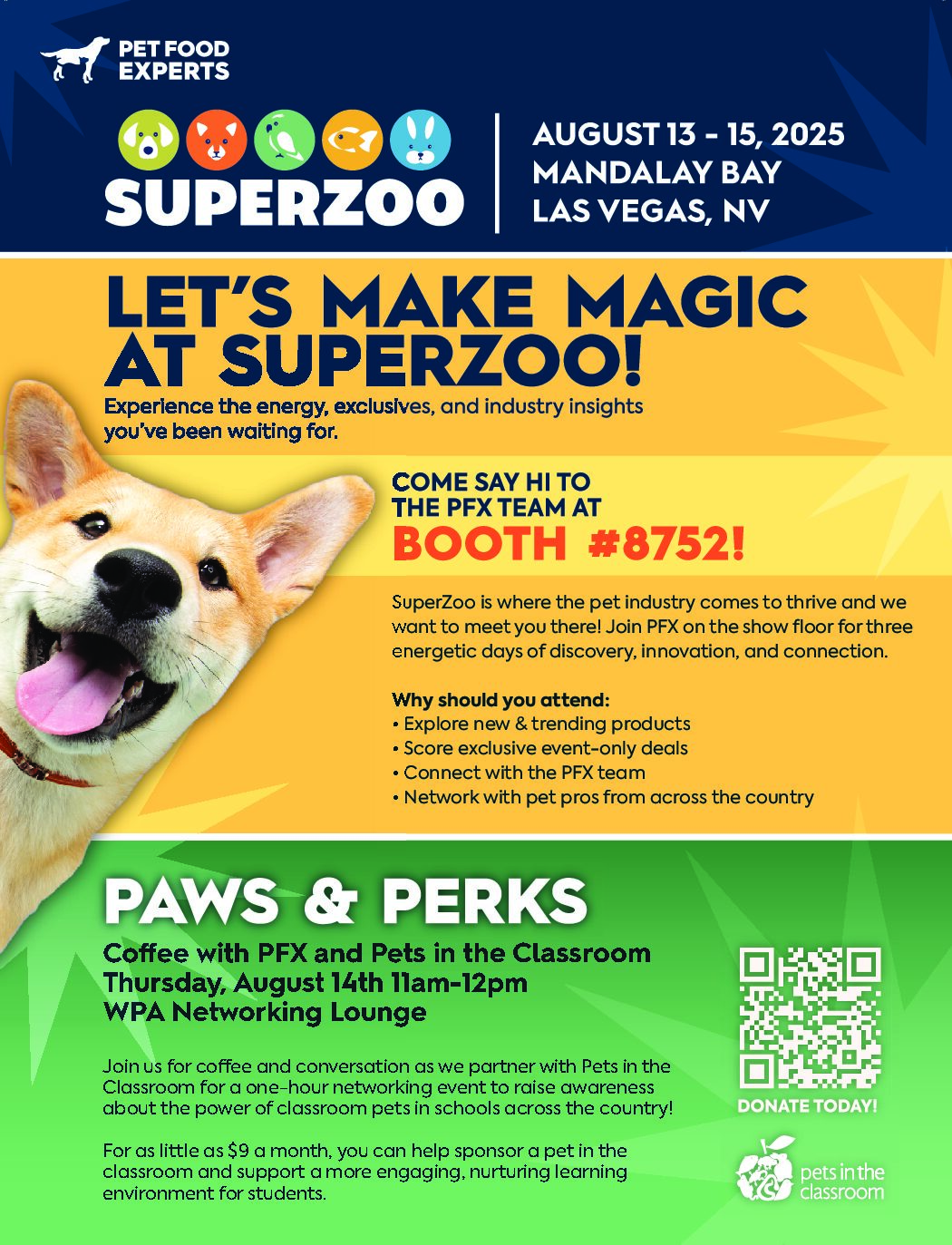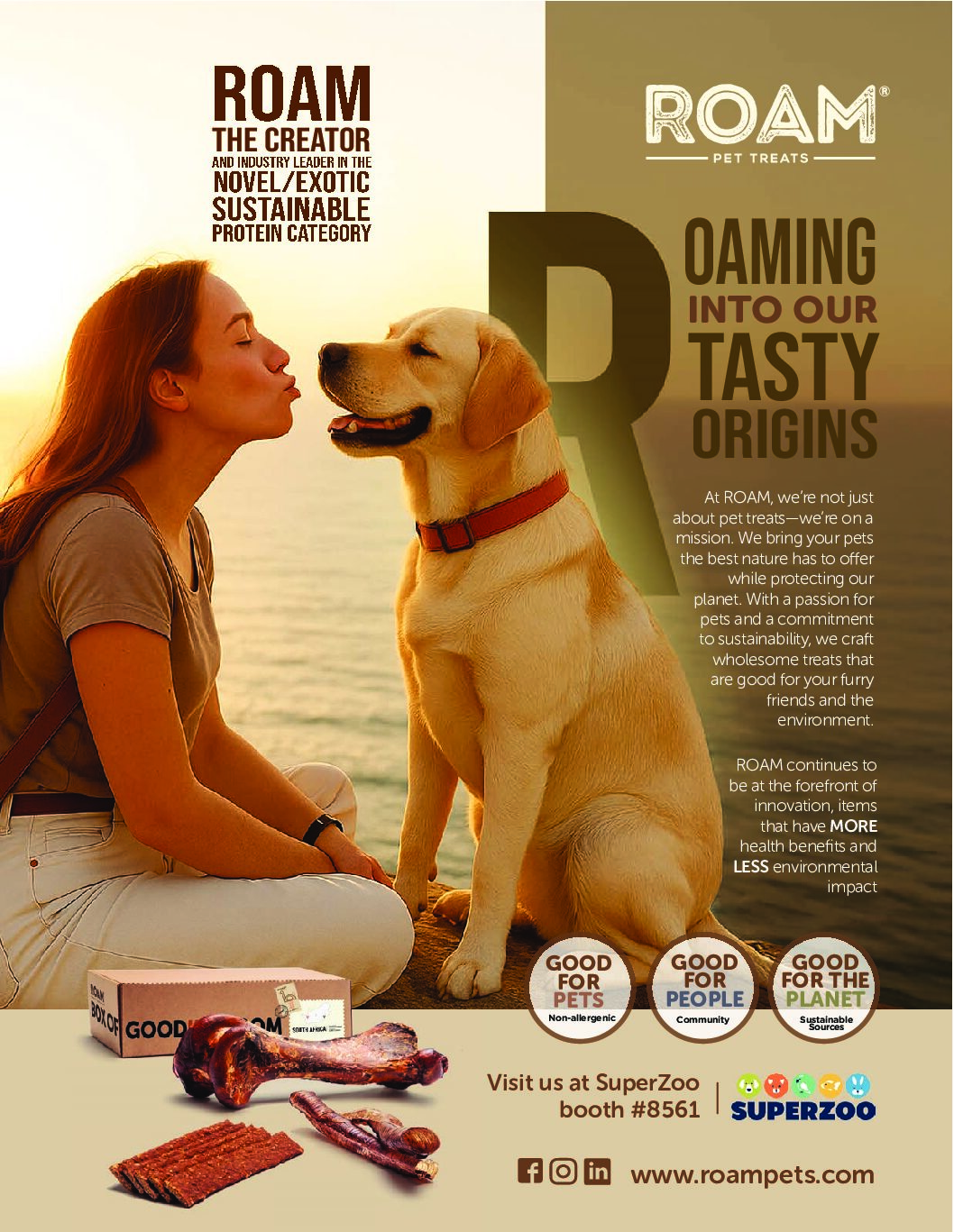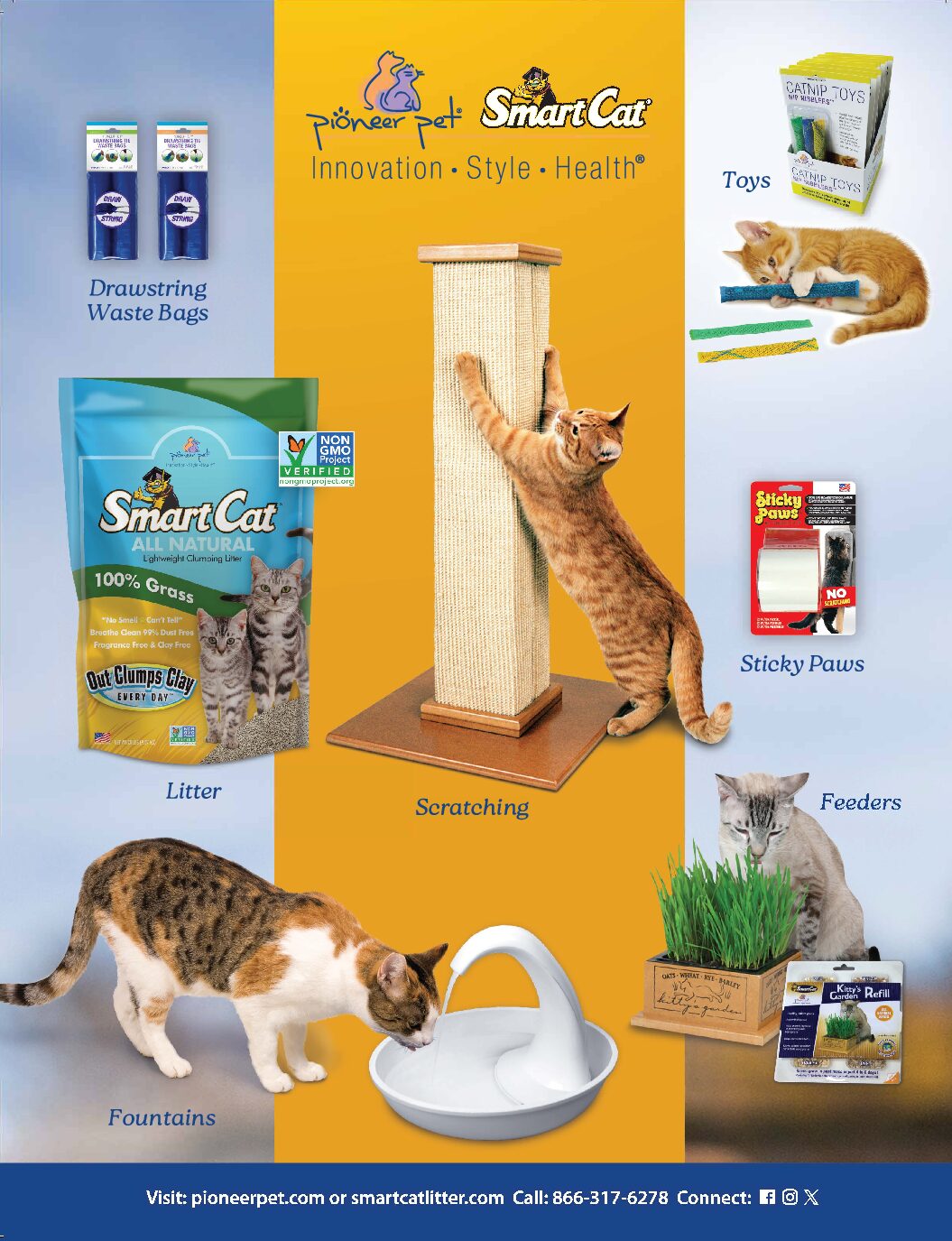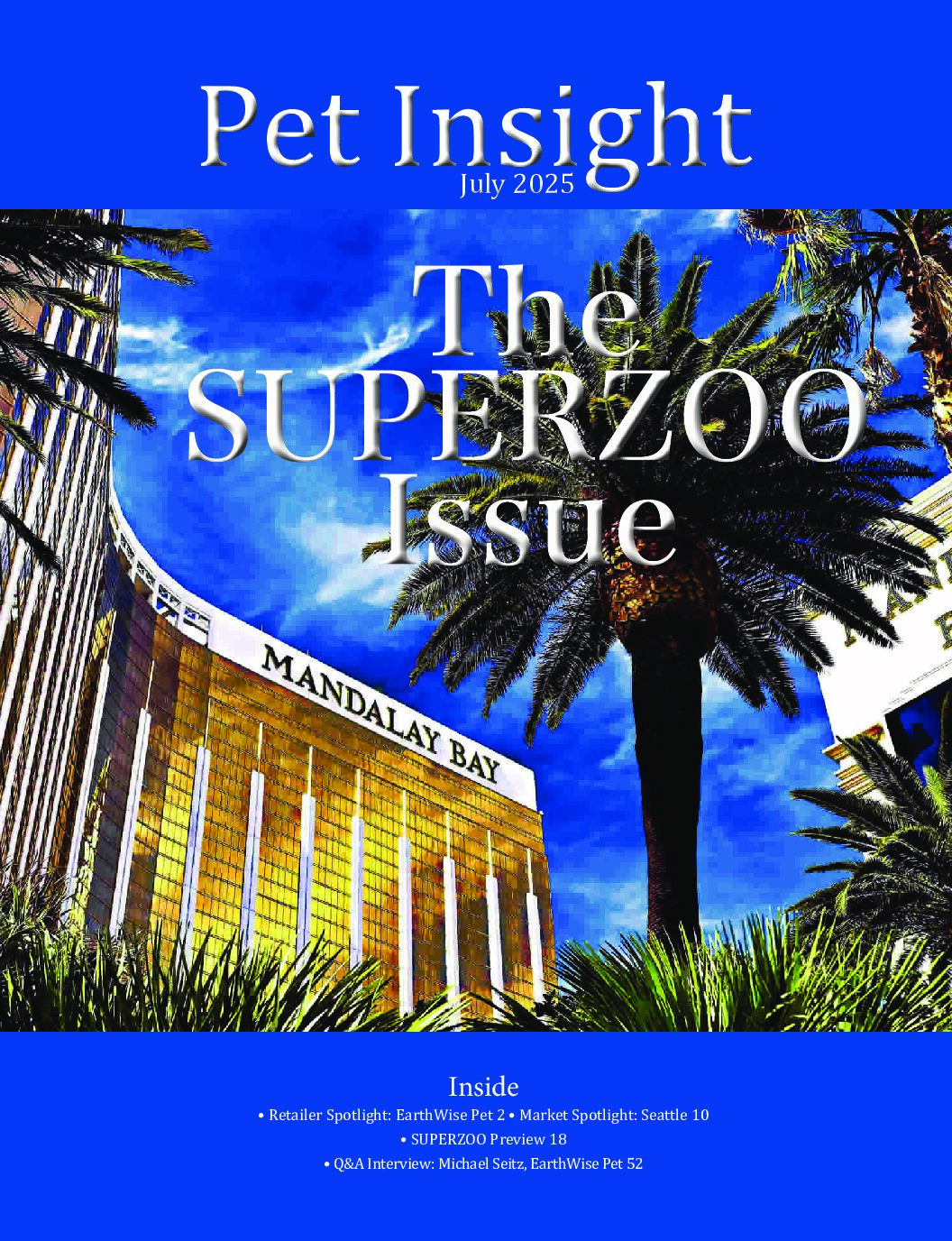Market Spotlight: Seattle
The greater Seattle market is a haven for pets. Pet retailers relish their role in helping pet owners create memories and experiences with their pets while giving them access to socializing and mental and physical stimulation—necessities for a pet’s well-being. These resources, coupled with strong local legislation that pushes pet businesses to operate transparently, ensuring pets’ safety, and ample training facilities that give pets a better chance to stay in their forever homes, illustrate that Seattle-area pet businesses are diverse and capable of meeting an assortment of pet needs. Contrast to the chilly and damp weather, Seattle pet businesses have created warm, inviting and straightforward places for pet owners to restock supplies, learn how to best care for their animals and connect with other pets and pet owners while bonding over a shared love for their pets.
By the Numbers
The greater Seattle pet market is comprised of Bellevue, Kent, Kirkland, Seattle and Tacoma, and that is home to 191 pet specialty store locations operated by 72 different companies.
Median household incomes vary. For example, Seattle has a median household income of $115,409; meanwhile in Bellevue, the median household income is at $158,253. Sandwiched between are Tacoma and Kent with similar median household incomes at $80,784 and $85,982 respectively, and Kirkland sits at $130,620.
With a population of 737,015, Seattle has 43 pet stores, with each store serving 8,565 households. Tacoma has a population of 219,346 and nine pet stores that each serve 10,257 households. In Kirkland, there are eight pet stores, with each store serving 5,002 households. The total population is 92,175. Bellevue and Kent each house seven pet stores, and that’s where the commonalities end. With a population of 151,854, each of Bellevue’s stores serve 9,241 households. In Kent, each of its seven stores serve 7,022 households, with a total population of 136,588.
Within the realm, Mud Bay with 34 stores, Petco with 24 stores and EarthWise Pet with 19 stores represent 40 percent of the market. On their heels are All the Best Pet Care and PetSmart with 17 and 14 stores respectively. The 53 single-store retailers make up 27 percent and the 17 “other multi-unit” retailers representing the remaining 32 percent round out the rest of the market.
Newsworthy Current Events
Pet ownership in the US has dramatically risen during the last 30 years. In 2024, 66 percent of US households—86.9 million homes—own a pet, according to Forbes. This is an increase of 56 percent of households in 1988. The uptick in pet ownership coincides with the rising popularity of pet insurance. In 2022, reportedly more than 4.8 million pets were insured, a 124.9 percent increase from 2018.
Five of the top 10 states with the most devoted dog owners are located in the Pacific and West, including Colorado, Alaska, Nevada, Washington and Oregon.
Washington ranked third for states with the most spoiled dogs, behind Florida and Alaska. More than half of Washingtonians, or 61 percent, brought their dog on vacation, 73 percent prepare homemade food or treats and 42 percent have pushed their dog in a stroller.
Washington state tied for seventh place for where the most devoted dog owners live. In Washington, 43 percent of dog owners say they would spend $4,000 or more to save their dog’s life and 7 percent said they would stay at a job they hated for their dog.
Almost all pet owners, or 97 percent, perceive their pets as a member of their family and reported they got a pet for companionship or emotional support as the leading reasons for becoming a pet parent. An example of this occurred during the Covid pandemic. Of the pet owners Forbes interviewed, 78 percent reported they got a pet during the pandemic.
Where pets are acquired matters. Of those Forbes surveyed, 42 percent of dog owners and 43 percent of cat owners said they purchased their pets from a store. Less than half, 38 percent of dog owners and 40 percent of cat owners, adopted their pet from an animal shelter or rescue. And 23 percent of dog owners and 7 percent of cat owners said they acquired their pet from a breeder.
Forbes reported dog owners spend on average $1,533 per year on essential expenses. These essentials include the price of a week of dog boarding $253, veterinary care $679 and pet insurance $600. Pet parents who need doggy day care services can tack on another $2,980 per year for biweekly day care services. Unexpected vet bills keep pet owners on edge. Less than half, or 42 percent, of pet owners admitted an unbudgeted vet bill of $999 or less would put them in the red.
Dogs and cats seem to be the most pampered of the pet species, especially if their owners are under 30 years of age. Dog owners reportedly spend the most on veterinary care ($367 per year), food ($339 per year) and grooming ($99 per year). Cat owners spend the most on food ($310 per year), veterinary care ($253 per year) and toys ($50 per year).
Gen Z pet owners (ages 18 to 25) are the most likely to spoil their pets with birthday cakes and presents (34 percent and 39 percent respectively)and clothing or costumes (32 percent). They’re also the most likely to spend money on behavioral training (41 percent), doggy daycare (35 percent), specialized pet food (44 percent) and dog walking services (31 percent).
In 2024, Seattle news outlets reported King County pet parents were able to keep a closer, more watchful, discerning eye on pet businesses such as doggy daycares, grooming facilities and animal shelters. County leaders improved transparency of these pet businesses to enable pet owners to make informed decisions on behalf of their pets.
King County and the City of Seattle officials vowed to provide more information to the public, including any active permit suspensions.
“We know that access to information about a pet business is important for owners to make informed decisions about the care of their pets,” a King County Public Health spokesperson said in a statement. “We’re developing the best methods for sharing this information with the public, drawing on the positive reception for our restaurant closure and foodborne illness outbreak announcements.”
In 2023, Geekwire reported Seattle startup Felix&Fido announced a $4 million pre-seed round driven by PSL Ventures and Rover, which backs Felix&Fido, to promote the rollout of Felix&Fido’s subscription-based pet care services.
In the midst of a veterinary shortage, Felix&Fido is determined to provide telemedicine, in-clinic and at-home services that mirror and serve each pet’s unique needs.
The Covid pandemic led to a significant increase in pet ownership, with more than 23 million pets adopted and approximately 20 percent of households acquiring pets, thereby intensifying the pre-existing veterinary workforce shortage. According to Mars Veterinary Health, this surge is projected to create a demand for nearly 41,000 additional veterinarians by 2030 to adequately care for the growing pet population, reiterating a critical need for expanding veterinary education and workforce capacity to meet future healthcare demands for pets.
Felix&Fido’s model is curated to tackle the veterinary workforce shortage and operational challenges by infusing at-home services for minor procedures, such as nail trims, to preserve clinic capacity for more complex cases, while virtual appointments allow for basic check-ups, pre-screenings and follow-ups—expanding customer reach and attracting veterinarians interested in remote work. Additionally, maintaining brick-and-mortar locations allows the company to handle larger procedures. This hybrid approach ensures resources are used efficiently, reduces operational costs and enhances service flexibility, making it a strategic solution to meet increasing pet healthcare demands amidst workforce shortages.
Pet-Focused Businesses
Positive Approach Dog Daycare and Training Center Owner Dan Inman’s experience of joining the pet industry calls attention to the importance of aligning personal passions with professional responsibilities. “I started my career out of college with a management training program and then wanted to transition to something closer to home once we had children,” Inman said. “It was a great transition because I have always loved animals, and my family needed help managing the family business. I kept the same philosophies I was using before. Take care of clients, take care of employees and growth and profitability will happen.”
Inca’s Secret, Parrot & Bird Toys/Boarding Owner Lisa Brandmeier’s path demonstrates how a personal passion for parrots and a keen observation of market gaps can lead to entrepreneurial success, even during challenging economic times. Her foray into the pet industry shows how devotion, resourcefulness and community engagement can transform a niche hobby into a thriving business. “My journey into the pet industry and the operation of Inca’s Secret, Parrot & Bird Toys/Boarding began with a lifelong passion for parrots, which I have nurtured for more than 30 years,” Brandmeier said. “After scaling back my accounting business to focus solely on my own work, I sought to find suitable toys for my large green winged macaw, Inca. Frustrated by the limited options available, I turned to Facebook and joined various parrot groups to ask fellow enthusiasts about their sources for toys and their satisfaction with those products. It became clear that there was a significant demand for quality parrot toys in my area, yet few local options existed, and those available were often of poor quality. Recognizing an opportunity, I sourced wholesale items at lower prices and invited group members to explore what I could offer. This initiative took shape in the fourth quarter of 2009, during a recession, as I aimed to provide affordable toys to help others care for their beloved feathered friends. As interest grew, customers began requesting a wider range of products, including food, cages and various bird species.”
Danette Knowles’ story is proof of how a lifelong enthusiasm for animals combined with inspiration from her travels and favorite pet stores fueled her entrepreneurial journey to open Wag Pet Market. Her background in fine arts and diverse experiences influenced her approach to creating a welcoming, community pet store that mirrors her love for animals and desire to bring a similar experience to her neighborhood. “I have always had a passion for animals, growing with horses, dogs and cats,” Knowles said. “My degree is in fine art, and I traveled to different cities for work prior to opening Wag. I would always seek out pet stores when in a new place, one of my favorites was George in San Francisco. I would get back to Washington and dream of having something like that in my neighborhood.”
Ben Ford’s deep commitment to dogs’ nutrition inspired him and his wife to create a successful business like The Seattle Barkery. Their experience with dog care and homemade dog food combined with a dedication to quality and transparency, drove them to develop a pet-focused venture that aligns with their values. The couple is proof how a love for animals combined with a willingness to work together can transform personal interests into a thriving business that caters to like-minded pet owners.
“My wife and I are very passionate about dogs,” Ford explained. “We are childless, so we put all of our love and energy into the dogs, and because of that, we’re always trying to figure out how we could be together more often and actually work together. We had a dog care business years ago, and that snowballed into The Seattle Barkery. We’ve always been nutrition conscious of what we’re feeding our dogs. We started cooking a lot of our meals at home for them so we knew exactly what was going in them, and that’s how The Seattle Barkery was born.”
Favorable Market Conditions
Inman points out that the greater Seattle market is distinguished by its strong dog-friendly culture and pet parents’ high demands for quality care, which drive service standards. The region’s chilly and damp climate necessitates both indoor and outdoor facilities to ensure dogs have a place to burn up energy and mental and physical stimulation. “The Seattle/Tacoma area has a few unique aspects,” he elaborated. “First, it is a very dog friendly market and the parents reflect that. They have high expectations when it comes to caring for part of their family and we strive to exceed them. Second, our climate is well known for challenging weather and having an indoor and outdoor facility that allows dogs to get exercise and stimulation while their parents work is key. People generally do not want to walk their dog after work when it’s dark, cold and rainy.”
Inca’s approach focuses on engaging pet owners through education on nutrition, behavior and responsible ownership, supported by a knowledgeable staff of parrot owners. “This strategic positioning has played a crucial role in our success within a competitive market,” Brandmeier said. “Engaging pet owners in discussions about nutrition, behavioral training and responsible ownership is fundamental to our approach. With a knowledgeable staff comprised of parrot owners, we prioritize continuous education, sharing insights while learning from our customers’ experiences. We carefully assess each family’s needs when advising on the adoption of hand-reared versus older parrots, sometimes recommending that potential owners wait until their circumstances are more favorable.”
Ford calls attention to the fact that urban apartment living offers a unique opportunity for pet businesses to create community events such as yappy hours, where a common love for dogs serves as an icebreaker. “Especially downtown, there are a lot of sky rise apartment buildings so we’ve capitalized on that,” he said. “We do yappy hours where we build a rapport with certain apartment buildings. The dogs are the great equalizer to get these apartment dwelling people out of their homes and come and meet and greet their neighbors, and the dogs are a perfect icebreaker for that. We are the center or focal point of a party and it gets people excited. You can come out and meet your neighbors and talk about dogs. We do a lot of work at the dog parks with our mobile truck, and that can be a fun opportunity too. You get a different swath of customers; people are going out to the dog parks, typically you’re getting bigger, younger dogs that need more activity. When you go to these yappy hours in the city, it’s more of smaller apartment dogs. They’re a little bit more nervous—the owners and the dogs. I grew up in Colorado and my parents still don’t quite understand what we do. I don’t think they even own a leash. They just open the door and tell the dogs to go have fun for the day, just be back before dark. I’ve always said this concept works perfectly in Seattle. We’re definitely passionate about our dogs. Maybe we’re a unique group of people that are very focused and passionate about dogs, but I’m one of those people myself, so why not share the joy with everyone else.”
The Impetus Behind Joining Pet
Prioritizing high-quality, compassionate care in the pet industry is vital, according to Inman. However, even if you offer multiple services such as training, daycare and grooming, it’s the exceptional client and animal focus which sets a business apart.
He cautions how under-staffing can quickly compromise care, risking injuries or illnesses and shares that true success comes from dedicated staff, comprehensive services and a genuine commitment to putting animals’ well-being first. This approach fosters trust, safety and loyalty from pet owners who value attentive, humane treatment.
“We purchased an existing business that was named after the training philosophy used,” Inman said. “Too many training facilities use negative reinforcement when helping dogs learn and develop behaviors. Our facility has many parts to it, training, daycare, boarding, grooming and retail. All those things can be found in the area however we separate ourselves by going over the top with client care and putting the animals first. You can skeleton staff these businesses and lose quality of care very quickly, but the dog care deteriorates and can lead to injury and illness.”
Brandmeier’s experience demonstrates how identifying industry gaps—namely the lack of quality products and education for large parrots—can inspire a business that combines product offerings with valuable care insights. Her personal connection to her rescue parrots and collaboration with local shelters are proof of her dedication to animal welfare, which has shaped her business’s mission to provide specialized care, quality supplies and a sense of community for parrot owners.
“In founding my company, I recognized a gap in the pet industry, particularly regarding the availability of toys and food for larger parrots like macaws,” Brandmeier said. “Many pet owners lack essential knowledge about parrot care, including behavior, husbandry and health maintenance. By addressing these needs, I aimed to provide not only products but also valuable information to help owners better care for their feathered companions. The name ‘Inca’s Secret, Parrot & Bird Toys/Boarding’ reflects my deep connection to my own parrot and symbolizes the unique offerings and insights that my business provides to fellow parrot enthusiasts. I became the caretaker of five larger parrots after rescuing them from a woman who was incarcerated for horse and animal abuse. This situation arose because my space was connected to an area that had remained vacant for years. Collaborating with the King County Regional Animal Shelter, I facilitated the parrots’ transfer, ensured their cages were cleaned and arranged for veterinary check-ups. This initiative led to the establishment of a large area dedicated to boarding birds and providing permanent sanctuary for some of them.”
Knowles’ reflected on how personal experiences and observations about community needs can inspire a successful pet business rooted in health and wellness. Recognizing a gap in access to healthy pet foods and supplies in her neighborhood, she envisioned Wag Pet Market as a place that mirrors her community’s values of health and education, fostering a space where pet owners can find quality, well-made products.
“Twenty two years ago when I founded Wag, I was going to a health food store to get my pets’ food and felt that nothing in my neighborhood offered healthy food or supplements to support your pet’s health along with well-made toys and fun accessories,” she said. “The neighborhood I live in is a walking community with a lot of pets and I felt it would be the perfect place to open Wag Pet Market. I truly believed that I lived in a community of people that were well educated on what they ate and how they took care of themselves and I felt that they wanted the same thing for their pets. I knew my store’s name should make people think about going to a healthy market that was designed around their pets’ needs and the store came to be known as Wag Pet Market.”
Ford points out creating memorable, experiential interactions is key to differentiating his pet business from more transactional stores, fostering strong community bonds and customer loyalty. By hosting events like Easter basket workshops and celebrating pets’ birthdays with special cakes, he and his team focus on shared experiences that generate lasting memories and deepen relationships with pet owners.
“We’ve always had an experience in mind,” Ford said. “We were always going out to different places with our dogs [and] you can only go to so many dog-friendly breweries before it gets a little old and boring, a little stagnant. We’ve always had something in mind of trying to do more experiences with them, and we’ve really capitalized on that in the business. We host different community events. For Easter, for instance, we had an Easter basket workshop where a lot of our loyal fans came in and built their own baskets with toys and different treats. We’ve always had that in the back of our mind and that’s what we preach to all of our employees that it’s a shared experience and because of that, a lot of people will take pictures and create memories especially with our birthday cakes. We have a lot of returning customers that will show us pictures of their birthday cake from eight or nine years ago that they had, so they get one every year. I would say building on an experience. I didn’t ever really see anything like that. Pet stores can be a little stagnant [who] look at it as purely transactional. All of our employees know a lot of the dogs’ names and then we start with the dogs’ names and then work on the owners’ names afterwards. Create a lasting memory and create an experience. It’s very rewarding.”
Responsibly Spoiling Pets
“Nutrition is always the biggest driving factor in my store,” Knowles said. “I want to see people feed their pets healthy food before doing anything else. I realize everyone’s at a different starting point but educating people on the difference in foods and the quality of their pets life due to what they eat is so important to me. I am also passionate about educating people on ways to stimulate their dog brain by using appropriate play and realizing every dog has different DNA and needs different types of training that are appropriate. We recently had a dog behaviorist do an Ask the Trainer question and answer pop-up which was hugely popular, it’s very eye-opening for people to see the different methods there are available to help your pet. Of course, the very best part of my job is the animals that come through my door and visit, they brighten up every day!”
“It can be kind of hard because we do sell fun and treats,” Ford said. “Some of our stuff isn’t as nutritious as others. It’s not meant to be eaten daily. But a lot of times the only feedback owners are getting is from the vets, and the vet can be a little dry. I’ve been pet-shamed before [and was told] ‘Your dog needs to lose some weight.’ I would say [to pet parents to] not being as nervous with the vet [even though] that’s always in the back of your mind—‘Oh, I really shouldn’t treat them this much.’ But they live such a short life. I scolded my wife once for sharing the leftover ice-cream bowl with our dog. She said, ‘He’s 14, just get over it. He’s not going to live forever.’ And that kind of woke me up. This should be a fun end of life situation. I try to encourage more [of] less stress. Don’t stress about it every day. It’s a treat—it’s not going to kill you to have a cheeseburger every once in a while, maybe not every day. In moderation with diet and exercise. We started as a food truck for dogs and then it snowballed into so much more. And we had as many as five locations so there’s definitely a market for something like this. Here in Seattle hopefully nationwide everyone should try to experience something like this with their dog.”
Inside
Retailer Spotlight: EarthWise Pet
SUPERZOO Preview: Freeze-Dried Premium Foods
SUPERZOO Preview: Made in the USA
SUPERZOO Preview: Premium Foods
SUPERZOO Preview: Health and Wellness
SUPERZOO Preview: Shampoos and Conditioners
Q&A Interview with Michael Seitz, CEO and Chairman, EarthWise Pet and GROOMBAR




